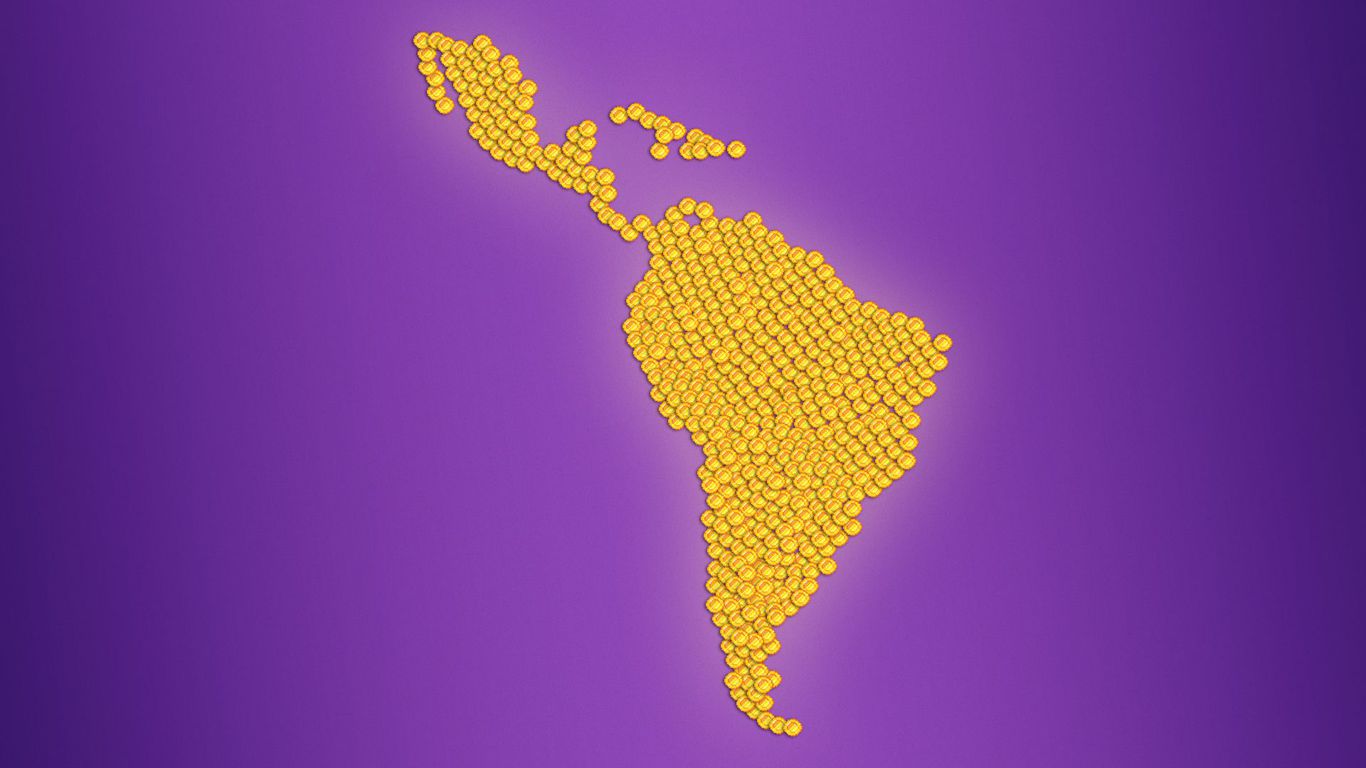Illustration: Megan Robinson/Axios
Differing economic conditions around the world are leading to the existence of two contrasting crypto markets — one resembling the original vision laid out over a decade ago, and the other driven by a more recent evolution.
Driving the news: Dollar and other currency-pegged stablecoins are proving their worth in countries where the value of the local currency swings from one day to the next. But the U.S. and Canada's "disproportionate embrace of DeFi" has led to a very different cryptocurrency market, according to a new report from research firm Chainalysis.
By the numbers: Crypto transactions in the Latin America region reached $562 billion as of June 2022, up 40% from last year's total, according to Chainalysis's 2o22 Geography of Cryptocurrency report published Thursday. (Here's last year's.)
The other side: Where storing value and sending payments dominates activity, crypto markets could develop differently than say, areas where decentralized finance is embraced.
Details: Record high inflation in pockets of Latin America and unstable local currency means folks in the region are using stablecoins for purchases or as a store of value, instead of say, having cash under mattresses and the like, Chainalysis' report says.
There are country-specific trends of note:
Mexico's largest exchange, Bitso, shows how big crypto payments can be.
Brazil is a rare spot in Latin America where the dominant use for crypto is for speculative trading, Chainalysis said, citing Thomaz Fortes, the crypto lead at Nubank, one of the world’s largest digital banking platforms.
Argentina has embraced stablecoins, where in Buenos Aires USDT, USDC, and USDD are popular — simply because they are pegged to the dollar, are digital and have no purchase limits.
Be smart: Anecdotes from El Salvador make Nayib Bukele's grand experiment with bitcoin look like a dud, but crypto adoption is taking hold elsewhere.
The bottom line: "Users in countries with weaker economies tend to rely on cryptocurrency for remittances and, if inflation is high, for savings preservation, while users in more developed markets like Brazil treat cryptocurrency more as a speculative investment," Chainalysis' report said.
Author
Administraroot


